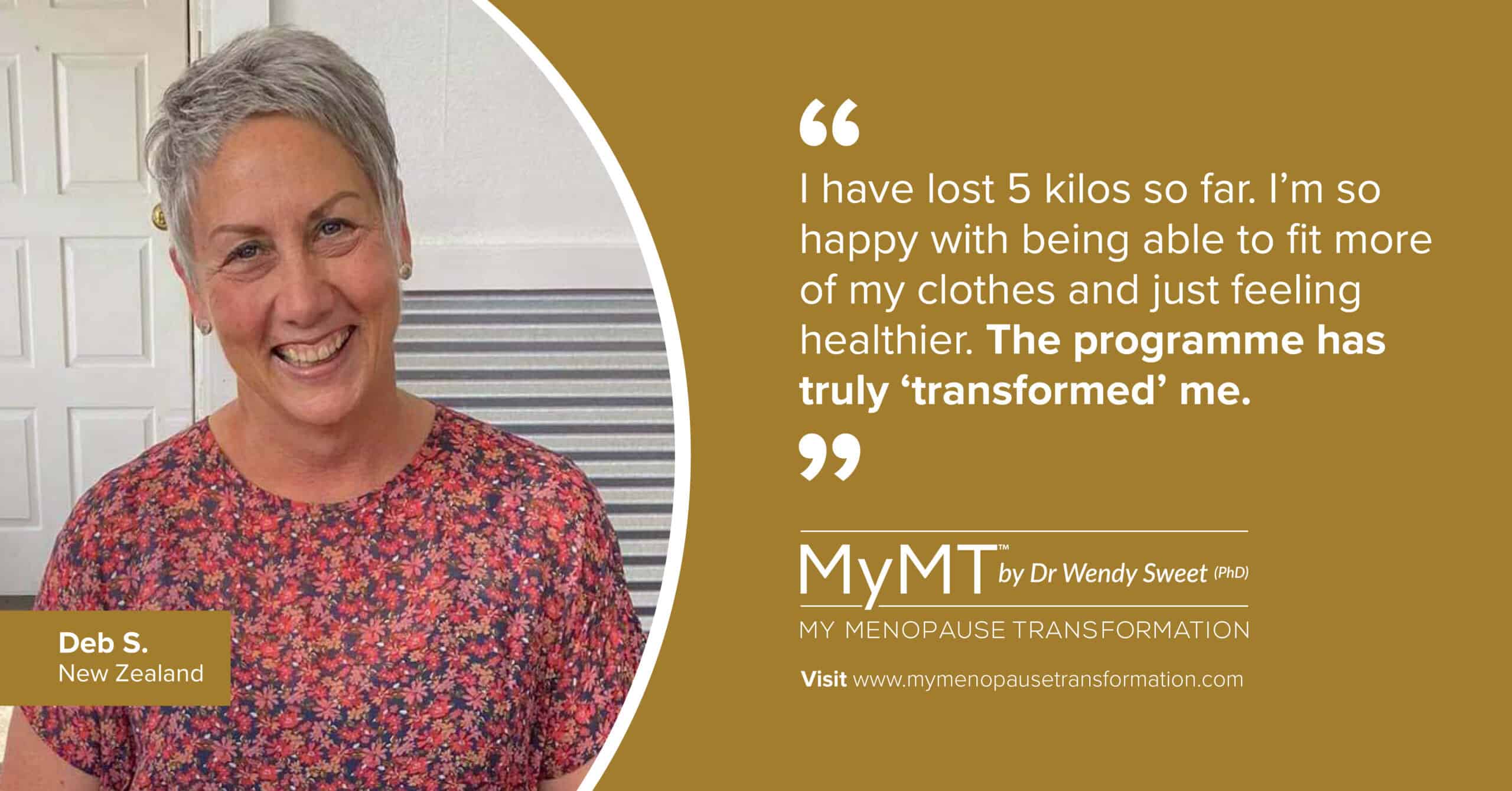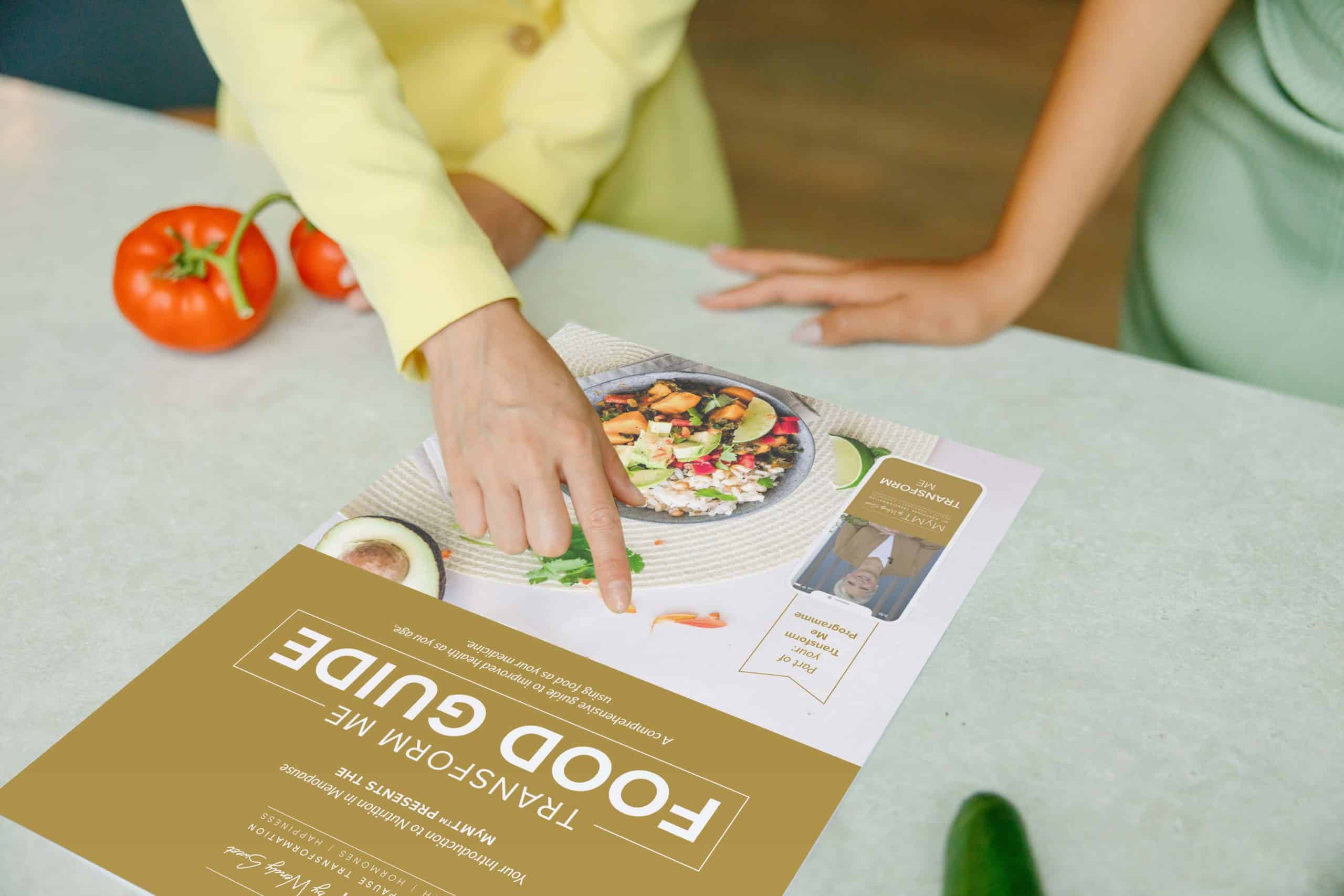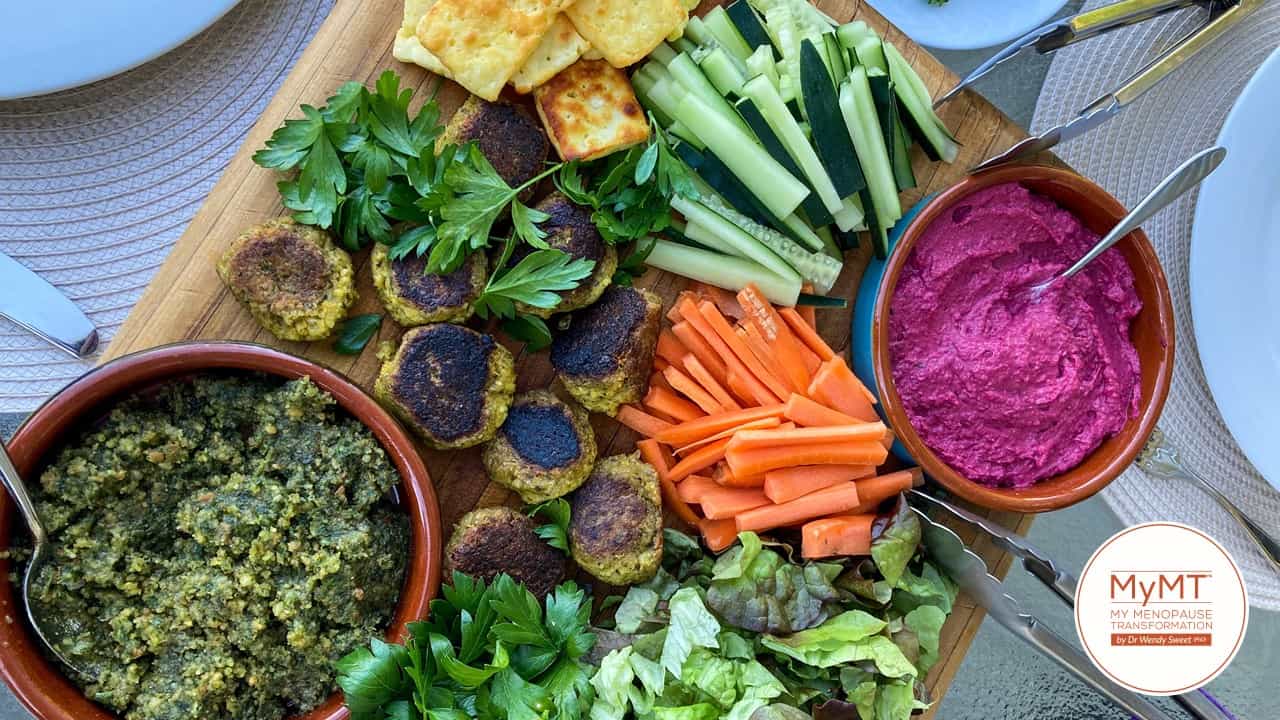Diet is established among the most important influences on health in modern societies and none more so, than in mid-life. With increasing inflammation from not sleeping, too much or not enough exercise, the wrong diet for our health as we age, becoming overweight and of course, from the incredible changes to our liver, gut and muscles during menopause, these are all detrimental to our ageing. Inflammation speeds up the rate of ageing.
The good news is, with the right approach to your lifestyle in menopause, you can ‘age-well’ and slow down the rate of inflammation in your blood vessels. One of these compounds is beet or beetroot. It contains betaine and I tell you about this in the video.
The other type of food that is evidenced to reduce depression are chickpeas. Yes! I talk about these in the video below and I explain why chickpeas help to improve serotonin production in the brain. Good to know if you are on menopause-related anti-depressants.
The MyMT™ Kitchen: Beautiful BEETROOT HUMMUS
This recipe makes enough for two jars. I recommend freezing some to keep it on hand, but if you don’t want to do this then just half the mixture.
Note – if you don’t like beetroot, you could follow the same recipe but use red peppers or a herb (like coriander).
- 4 medium cloves of garlic (sliced)
- 2 spring onions (scallions) chopped
- 2 cans of chickpeas (or use dried chickpeas, soaked and cooked) – make sure you drain and rinse the canned chickpeas.
- handful of parsley and I added 3 Kale leaves (medium)
- 6 tablespoons of tahini (this is crushed sesame seeds, so I used 1/4 cup of sesame seeds that I had in the pantry).
- Juice of 2 freshly squeezed lemons
- 1 teaspoon salt (I used organic iodised sea salt not Himalayan salt).
- 4 small-medium beetroot, baked with a small amount of olive oil on low heat until soft. Then cooled.
- Place the garlic, spring onions, parsley and kale (optional) in the food processor or blender. Mince this up.
- Add the rinsed chickpeas, tahini (or sesame seeds), lemon juice and 2 tablespoons of the lemon-infused olive oil) and salt. Then the cooked beetroot. Puree until it becomes a thick paste.
- Cut up carrot sticks, celery, red peppers and place on a plate to serve with the hummus and yes, some organic corn chips as well.


References:
Hobbs D., George T., & Lovegrove J. (2013). The effects of dietary nitrate on blood pressure and endothelial function: a review of human intervention studies. Nutr Res Rev. 26(2):210-22.
Young, S. (2007). How to increase serotonin in the human brain without drugs. J Psychiatry Neurosci., 32(6): 394-9.

